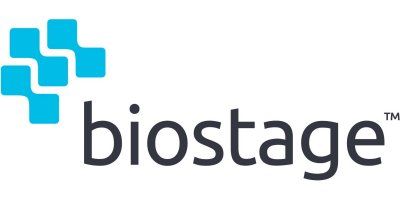

- Home
- Companies
- Harvard Apparatus Regenerative ...
- News
- New Paper Shows Biostage`s Esophageal ...
New Paper Shows Biostage`s Esophageal Implant Regenerates the Esophagus in Piglets
Biostage, Inc. (OTCQB: BSTG) ("Biostage" or the "Company"), a biotechnology company with successful "first-in-human" experience in esophageal cancer and FDA approval to commence a clinical trial of its Biostage Esophageal Implant for esophageal disease, today announced the publication of paper establishing the basis for using its product to treat birth defects in the esophagus in babies.
The paper(1) was published today in Nature Partner Journals Regenerative Medicine and concludes that the Biostage Esophageal Implant, "is safe and well tolerated". By three weeks after surgery a continuous tube had been regenerated, by 3 months a complete mucosal lining was seen and by one year, "it was difficult to distinguish neo-tissue vs. the native tissue".
The piglets gained weight steadily over the course of the study and eventually tripled their size, showing that the regenerated esophagus grows with the patient.
The paper states that current techniques for repairing birth defects in the esophagus, "have significant costs, complication rates, lengthy hospital stays, and significant morbidities. Therefore, the development of novel approaches that bridge a primary long gap…are highly desired." Dr. Christine Finck, Surgeon in Chief, Connecticut Children`s Medical Center, who performed the surgeries, said "this technology has the potential to provide a novel therapy for some of our must fragile patients."
Biostage has previously reported on the first-in-human regeneration of an esophagus in an adult cancer patient, performed at Mayo Clinic and published in JTO Clinical and Research Reports in August 2021(2). That paper concluded that the Biostage Esophageal Implant would have, "considerable clinical use."
The FDA has already approved a 10-patient, phase 1/2 clinical trial for repair of the esophagus in adults. The FDA has indicated a willingness to consider expanding the current clinical trial to include pediatric subjects once the safety of the implant is shown in adults. Hence, we expect the repair of birth defects in the esophagus to be an additional indication for which Biostage will seek FDA approval.
In the U.S., there are approximately 1,000 babies born each year with defects in the esophagus. Approximately 100 of these would be eligible for treatment with the pediatric Biostage Esophageal Implant. In addition, we believe that our product would be used in additional cases where the primary treatment has failed. The small size of the pediatric population makes the treatment eligible for a Priority Review Voucher from the FDA. These vouchers are transferrable, and a sale of such voucher could provide a significant source of non-dilutive financing for Biostage.
David Green, Biostage`s founder and former CEO, who was recently appointed as Chairman of the Board and rehired as interim CEO said, "This ground-breaking work should allow us to treat babies born with birth defects in the esophagus as well as adults with cancer or trauma in the esophagus. I am very proud of our team that has performed this research in collaboration with our long-time partner in pediatric indications, Connecticut Children`s Medical Center. Bringing hope to patients like these is why I rejoined Biostage." Connecticut Children`s Medical Center is also an investor in Biostage.
